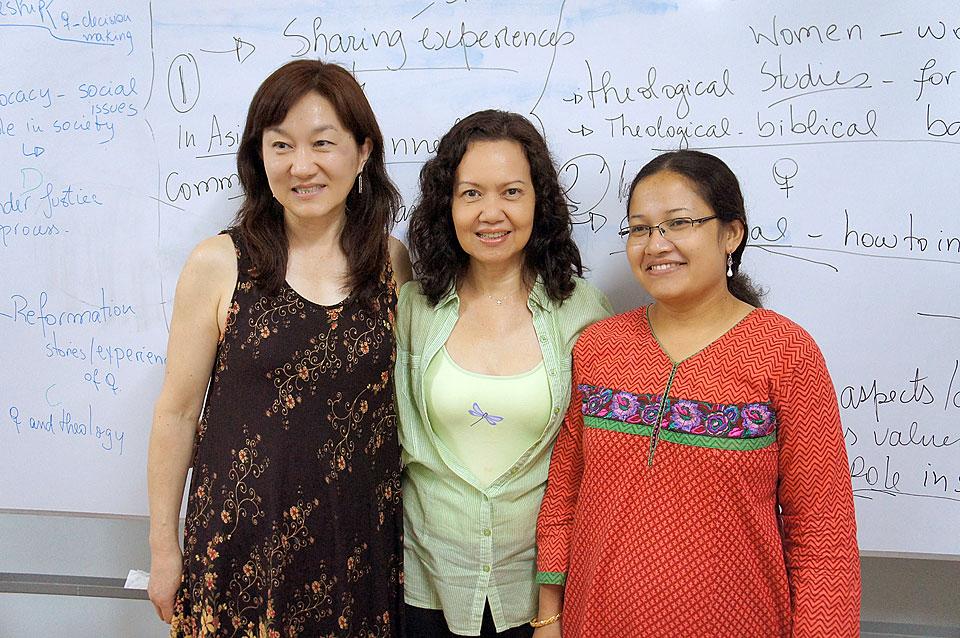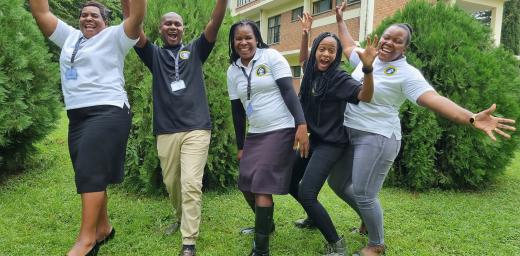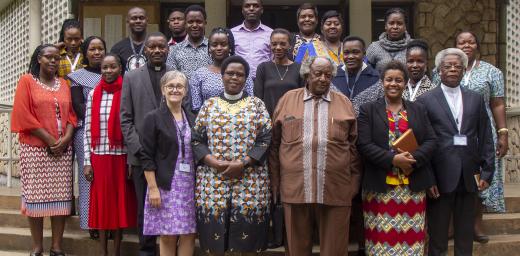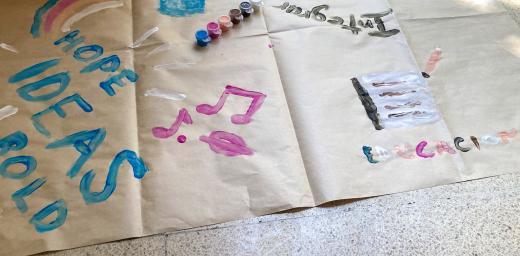Growing Awareness of Women’s Role in Churches

Kiyoe Narita (Japan Lutheran Church; WICAS regional coordinator NEALUC), Nora Samosir (HKBP, Singapore; WICAS regional coordinator SEALUC) and Ranjitha Borgoary (UELCI womenÂs desk; WICAS regional coordinator WESALUC), participating at the WICAS Asia regional meeting, April 9-10 in Thailand. © LWF/E. Neuenfeldt
Women Leaders in LWF Churches in Asia Set Course for Inclusive Participation
One of the oldest and well known groups of the Christian Protestant Church in Indonesia (GKPI) in Medan is a women’s church choir which “is never absent at church on Sunday, no matter what,” Tetty Aritonang told a recent regional women’s meeting of The Lutheran World Federation (LWF) in Bangkok, Thailand. She underlined the group’s contribution to church life, but decried the general lack of understanding about inclusive participation of many women, men and youth actively serving the church today.
The GKPI women’s desk coordinator was among the participants in the LWF Women in Church and Society (WICAS) regional meeting held prior to the Asia Church Leadership Conference (ACLC), hosted by the Evangelical Lutheran Church in Thailand, 10-15 April.
At the WICAS meeting, regional coordinators discussed the main priorities for women’s work in their respective churches, outlined plans for the 500th anniversary of the Reformation in 2017,and gave further input to the draft LWF gender policy, which will be presented to the June 2013 LWF Council meeting. Reports from the three sub-regions under which the LWF member churches in Asia coordinate their work, illustrated that there is growing awareness around women’s roles in church and in society, and space is opening up for dialogue on gender issues.
Presenting the Asian women’s report to the ACLC on 15 April, Ranjitha Borgoary (India) and Kiyoe Narita (Japan) urged that women’s work in the region be understood as core church work, rather than something complementary or parallel to it.
They affirmed that churches should motivate and open spaces for women to study theology in order to build the capacity to have more women in decision making and in ordained ministry.
On advocacy issues, they emphasized that issues relating to the realities of migration need to be addressed especially how this phenomenon affects women. It is also important to remain focused on the issue of cultural practices that promote discrimination against women in church and society, they noted.
The WICAS network is planning to hold a conference for women and men in 2014 to explore together how the LWF gender justice policy can be placed in the context of Asia, and what further actions ought to be undertaken around leadership, advocacy and women’s theology.
Mary Hrangliani from the Evangelical Lutheran Church of Myanmar said the WICAS meeting had showed how important it was for women to have access to theological education in order to become leaders. “But it is also important that the church provides space for women who receive theological training so that they can serve in their vocation,” she said.
Violence against Women
Dora Hemalatha, a delegate from India, called for churches to empower women in order to end institutional, cultural and interpersonal violence and atrocities committed against women. “I would like to make a call to all, saying, ‘Enough of cultural discrimination which allows rapes. Women are mothers, sisters, wives and daughters. They must be treated as independent and dignified human beings,’” she concluded.
Aritonang expressed optimism about working for changes in GKPI, saying the WICAS meeting had provided much-needed support in planning programs that would help promote relations that empower both women and men for equal participation and leadership in the church.
(WICAS regional coordinators Ranjitha Borgoary (India) and Kiyoe Narita (Japan) contributed to this LWI article.)





